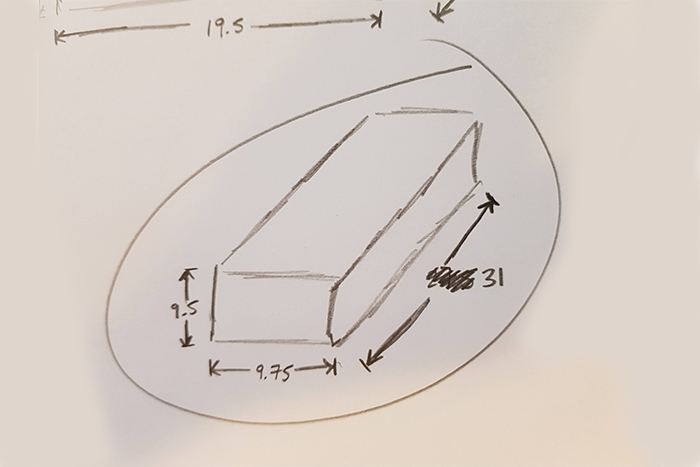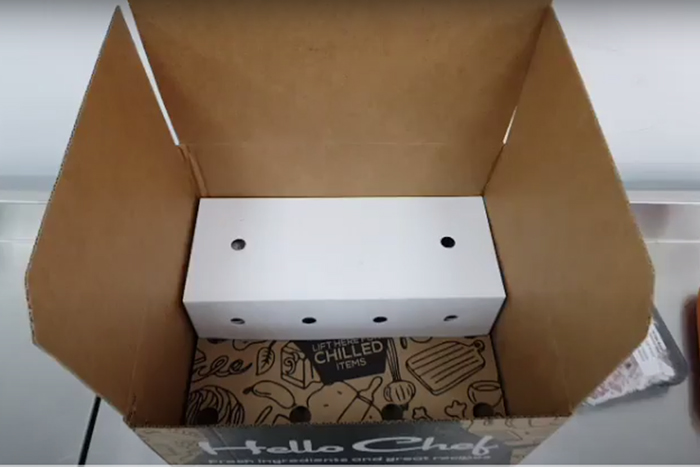
What sustainability means to us at Hello Chef
I first became aware of what sustainability meant when I did a corporate social responsibility course during my MBA in Spring 2007. Back then, we delved deep into topics such as how the EU’s carbon offset market was going to work and whether the rising popularity of fairtrade goods was a fad or here to stay.
Al Gore’s An Inconvenient Truth had just come out and was screened during the class one morning. There’s a scene in the documentary where Gore is standing in front of a giant screen. He gets up on a lift to go higher and higher and point directly at numbers that show how the extent of the climate situation has made itself more evident, as confirmed by science.
Watching him lecture about the increase in major storms and high category hurricanes, the radical changes in extinction rates, and other troubling numbers he shared on global warming made me feel empty and helpless. I wanted to do something just as much as anyone else watching, but what? The CSR course covered a lot of what the problems were, but unfortunately didn’t reveal what we should do about it.
Fast forward to 2015 when my wife Olivia and I were trying to get Hello Chef going as a business we started from home. Back then, our boxes were packed at a catering company and we only had 10 orders per week. We would pack our orders in ice and deliver them ourselves to customers, who were all friends, and hear their feedback. I remember delivering to one friend and watching him open up our box for the first time. He pulled out one of our recipe bags (we used bags before switching to kraft paper boxes) stared at it, and said “Wow, that’s a lot of plastic.”

I didn’t listen to anything else he commented on. I felt numb with the same feeling of helplessness as I did on that day back in 2007 – only this time, the feeling was even worse. Our product was something that I believed could help people in so many ways. Yet, the only feedback I got was on the one thing I felt I had little to no experience in how to change.


Today, we pack thousands of recipe boxes per week. We know for a fact that we help our customers lead easier and more fulfilling lives with our products. But a haze looms over my head – that feeling of helplessness in making a social and environmental product that’s substantial enough to really do good for the world.
As the business has developed, reducing our reliance on packaging has been something that our customers have asked us to do repeatedly. We’ve taken some meaningful steps, but we still feel this is not enough. We feel like we can – and should, do much more, and that we are in a better position than ever to do just that.
We do feel that using a meal kit is significantly less impactful for the environment than most of the other food alternatives out there. This is something that continues to hold true in several well-documented, independent studies that have been carried out by reputable global entities and universities. Speaking about the benefits of using a meal kit is something that we still don’t do enough, and something that we will change.
Food waste is having catastrophic consequences on the environment – much more than most people realise (and far worse than the waste produced from food packaging waste). The percentage amounts and contributing factors for food waste differ from country to country, but affluent regions’ largest reasons rest firmly on poor consumption habits.
Vaclav Smil’s book Numbers Don’t Lie articulates the impact on food waste in a very compelling way. In short, “the production of wasted food may be responsible for as much as 10 percent of global greenhouse gas emissions.” 10 percent is enormous and largely preventable.
Smil continues by saying, “Affluent countries need to produce considerably less food and consume it with considerably less waste.” That includes every element of the supply chain, from farm to fork. We know for sure that limiting food waste by means of using a meal kit that pre-portions food is a good way to start this and can make an impact.
By no means do I claim that using our meal kits is enough – we as a company should hold ourselves much more accountable. Nor am I an expert in the area of sustainability. However, we have a team who are willing to make this change happen and I feel lucky to see the start of that happening.
Back in January 2022, I fell into a slump of motivation that I’ve shared openly with my team. I took a couple of weeks off to sort myself out. During that time I asked myself questions like: how can I find more meaning in my life? What is the purpose of coming to work every day? Then a friend shared with me the name of a movement that has now become a major focus area for many of us in the company: B Corp.
Reading about becoming a certified Benefit Organisation and its high standards of social and environmental performance was enlightening to me. I registered myself and my team on a 12-week B Corp course so that we could collectively understand more about the impact we have on our customers, our employees, the environment, our community, and other stakeholders. I finally had a means with which to not only understand the issues around how we need to act as a company, but also the direction and tools required to make things happen.
We are now 100% committed to becoming a B Corp organisation – potentially the first locally-based company in the Middle East region. As we go through the assessment, we realise the mountain of work that lies ahead. Thankfully, the advantages we’ve built as an organisation over the years demonstrate that we’re fortunately not doing to bad in a lot of areas.
We’ve started by redrafting nearly all our policies and creating dozens more. But drafting policies is the easy part – getting them actually implemented (like an environmental policy or an anti-corruption and bribery policy) to the level where there is tangible impact is completely another thing. We’re currently at these early stages and building a nice momentum and buzz in the company which feels exciting, scary, and sometimes frustrating.
One win is we’re now measuring the first set of things that we feel are useful, with the environmental performance numbers in particular. I’ll caveat that I don’t believe our performance in these areas are particularly good or bad (the truth is, we’re still finding out), but at least we have the data and are figuring out how to improve on things.
I’ll start with a theme I mentioned earlier that I believe strongly in – food waste. We’ve decided to measure how much food we waste in our packing and operational methods as a percentage of revenue ($) to keep things simple. Here it is below:
| Food Wastage (%) | |
| Average 2021 | 0.46% |
| Average 2022 | 0.57% |
Food waste performance in Hello Chef actually worsened over the course of 2022. “OK, at least we know and can do something about it,” was the first thing my colleague Kyle Ashford said.
We are also beginning to track other metrics like electricity, water, and CO2/serving but as we aren’t 100% sure of those yet, we’ll publish those at another time when we are confident that they are right and verified by a third party.
I started out this article by sharing my feeling of helplessness with regards to the state of the climate situation. I believe that we have a responsibility to do something about that, and we are taking the first steps. I also believe, after having gone through the B Corp course, that all companies have a wider responsibility beyond simply the environment. Companies have an obligation to do good for the world.
Being profitable is important and a non-negotiable for any business that wants to be sustainable. But that’s not the only thing that matters when it comes to true sustainability – employees need to be happy and treated well – as good as we treat our very best of customers. Suppliers need to be seen as partners and given the respect they deserve. Customers need to be listened to and we must anticipate and act on their needs. I believe firmly that Hello Chef can lead in that change, and I find real meaning in that.

I’m not claiming that we are perfect. Hello Chef has a variety of challenges, on environmental and other fronts. But we care enough to have educated ourselves on what our impact is and how to continually improve it as Hello Chef continues on its purpose of helping people to lead easier and more fulfilling lives.
I’ll keep letting you know how we are doing on our sustainability journey with news of both our struggles and successes. Thank you for reading this.
Ahmed
Ahmed Al Akber
CEO
Hello Chef
16th September, 2022
